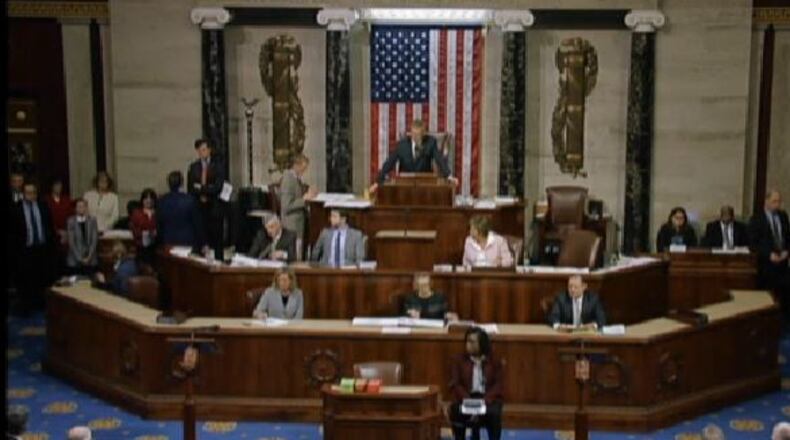A month after Election Day, Rep. David Valadao (R-CA) conceded defeat to challenger T.J. Cox on Thursday, as Republicans lost a seventh U.S. House seat to Democrats in California, pushing the party's net gains to 40 seats in the 2018 mid-term elections, as Democrats triumphed in yet another Congressional district which had voted for Hillary Clinton in 2016.
A three-term more moderate Republican, Valadao had led by almost eight points on the night of the elections, but mail-in ballots, absentees and provisionals ran against him in the weeks of slow election counting in California, as Cox took the lead last week and won by 862 votes in the final count.
"There is no doubt that we are disappointed in the results," Valadao said in a statement, in which he made no mention of any accusations of election fraud in his Central Valley district in California.
"There are truly no words to express how grateful I am to my supporters," Valadao added, one of seven Republicans who could not survive the Democratic wave in the Golden State.
Valadao was the 30th incumbent Republican in the House to lose in the mid-terms, the highest number of defeats since the 2010 Tea Party election, when 54 incumbents lost in the November election.
Valadao's defeat also means that of the 25 House Republicans who had won in 2016 in a district where Hillary Clinton had won more votes than Donald Trump, 22 of those seats went for a Democrat in the 2018 mid terms.
Of those 25 seats, the only GOP survivors were Rep. John Katko in New York, Rep. Brian Fitzpatrick in Pennsylvania, and Rep. Will Hurd in Texas.
Those setbacks were a prime reason why the GOP lost its majority in the House, as Democrats will take charge with at least 235 seats in the 116th Congress.
There is one undecided U.S. House seat left, North Carolina's 9th district, which was originally called for Republicans, but has been consumed by allegations of absentee ballot fraud, as the Democrat in race on Thursday withdrew his concession.
"Today I withdraw my concession and call on Mark Harris to end his silence and tell us exactly what he knew, and when," said Democrat Dan McCready.
Democrats on Thursday again made clear they would object to Harris being seated from North Carolina, and also raised the possibility that an objection would be made to Republican Rep. Ross Spano of Florida, who admitted in the last week that he broke federal election laws by taking $180,000 in loans during the campaign, and funneling most of the money into his campaign, by designating it as 'personal funds.'
"The issue in Florida is one that we're tracking as well," said House Democratic Leader Nancy Pelosi, who said the issues at hand are serious.
"This is about undermining the integrity of our elections," Pelosi told reporters at the Capitol.
About the Author
The Latest
Featured



